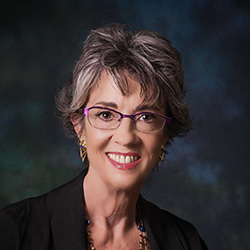Robyn Stone reflects on her 12-month tenure as a member of the Institute of Medicine (IOM) Committee on the Mental Health Workforce for Geriatric Populations. Stone hopes the committee’s July 2012 report will serve as a wake-up call for consumers, policy makers, mental health professionals, and providers of long-term services and supports.
The Institute of Medicine (IOM) convened our group last summer at the request of the U.S. Department of Health and Human Services (HHS).
Being a member of the Committee on the Mental Health Workforce for Geriatric Populations was a rewarding and eye-opening experience for me. I’m hoping the committee’s final report will serve as a wake-up call for consumers, policy makers, mental health professionals, and providers of long-term services and supports.
MAJOR FINDINGS
Our final report, The Mental Health and Substance Use Workforce for Older Adults: In Whose Hands?, draws needed attention to the startlingly high prevalence of mental health and substance abuse-related conditions among the elderly.
In addition, the report shines a spotlight on the critical shortage of trained workers who can care for these older adults. Specifically, we found that:
- At least 5.6 to 8 million older Americans have a mental health condition or substance abuse disorder that can often impact their physical health.
- Age-related factors make mental health/substance use (MH/SU) issues extremely challenging for the older population. For example, changes in how older adults metabolize alcohol and drugs can exacerbate MH/SU symptoms while cognitive impairments can complicate diagnosis and treatment.
- The number of caregivers entering, working in or remaining in MH/SU-related fields is woefully inadequate to meet projected service needs.
- Relatively few standards governing the geriatric workforce require formal training or competencies in addressing MH/SU conditions in older adults.
NEED FOR AN INTEGRATED APPROACH
In my view, integration, coordination and cooperation are the keys to successfully addressing all of these challenges.
Every person who cares for an older adult – whether they come from the health, long-term care or mental health sectors – must be able to work effectively with the older population and must be able to recognize the signs of MH/SU conditions among its members.
Once trained, all of these caregivers must work together in a coordinated fashion to provide early MH/SU interventions through evidence-based programs and strategies.
Fittingly, all 5 recommendations from the Committee on the Mental Health Workforce for Geriatric Populations reflect this need for integration, coordination and cooperation. For instance, we call for:
- A coordinated federal effort to develop and strengthen the nation’s geriatric MH/SU workforce.
- A cooperative effort by multiple HHS agencies to build the capacity and facilitate the deployment of the MH/SU workforce for older Americans.
- Required professional competencies in geriatric MH/SU for all levels of personnel that care for the diverse older population.
- Funding of the Affordable Care Act’s workforce provisions, which authorize training, scholarships, and loan forgiveness programs for the geriatric MH/SU workforce.
- A data collection and reporting strategy for geriatric MH/SU workforce planning.
ROLE OF LEADINGAGE AND ITS MEMBERS
What does all this mean for LeadingAge members?
The answer is simple.
For the good of their residents and clients, members must take the IOM committee’s findings and recommendations to heart.
And then they must carry out 3 important tasks:
Conduct screening and assessments. Many LeadingAge members have anecdotal evidence of how mental illnesses and substance abuse affect their residents and clients. But providers cannot begin to address these conditions until they know just how prevalent they are.
Provide staff members with adequate MH/SU training. LeadingAge members can’t delay their implementation of evidence-based MH/SU training programs, many of which are identified in the IOM report. In addition, members must advocate for increased MH/SU-related training and competencies among all of the individuals who work with their residents and clients.
Make MH/SU issues part of an overall person-centered care delivery system. Providing care to the whole person involves marshaling the expertise of a multidisciplinary team that addresses not only the person’s physical conditions, but also takes into account the mental health and social conditions that impact quality of life. LeadingAge members excel at this type of care. They can set an important example for other providers to follow.
CAUSE FOR OPTIMISM
We face overwhelming challenges and equally challenges obstacles as we strive to provide current and future older adults with the services and supports they need to achieve the highest quality of life possible.
I think we can succeed. But it will take time – and it will take every one of us.
Hopefully, the IOM report will convince all those who serve older Americans that now is the time to get to work.

Robyn I. Stone, DrPH, is senior vice president of research at LeadingAge, and co-director of the LeadingAge LTSS Center @UMass Boston. Her widely published work addresses long-term care policy and quality, chronic care for people with disabilities, the aging services workforce, affordable senior housing, and family caregiving.
